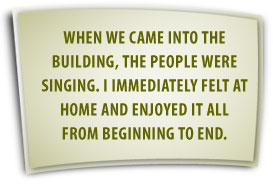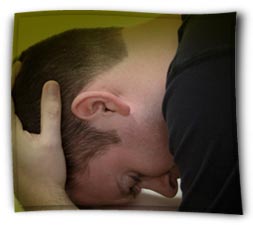
 have been looking back lately to those difficult years when we were fighting to free Zimbabwe from its colonial masters. My friends and I were moved by powerful convictions that burned like fire in our hearts. From childhood I learned to hate oppression and tyranny. When I discovered the principles of equality and social justice taught by Communism, it seemed to me that this philosophy offered the best hope of bringing about an equitable society.
have been looking back lately to those difficult years when we were fighting to free Zimbabwe from its colonial masters. My friends and I were moved by powerful convictions that burned like fire in our hearts. From childhood I learned to hate oppression and tyranny. When I discovered the principles of equality and social justice taught by Communism, it seemed to me that this philosophy offered the best hope of bringing about an equitable society.
At the same time, I viewed religion as a tool that had been used for exploitation by the colonial powers. Therefore, I wanted no part of it.
After independence I served in the Army for several years, then retired to serve the government as a civilian. As deputy minister, provincial governor, and later as my country’s ambassador to Algeria and Russia, we often had to deal with complex and difficult problems. Although I still disliked capitalism, socialism seemed to be crumbling before our eyes. I had a sense of disappointment as the idealism of my youth faded away.
On a personal level, it became increasingly clear that something was missing in my life. I was beset by personal problems, and gradually the conviction came that some of these problems might be solved in some way by religion. I also thought of the achievements I had made, and became convinced they were not of my own doing.
Driven to My Knees
In 1994, when I was serving in Algeria, my personal problems were at their height. One day I felt an exceedingly strange sensation, as if something was urging me to pray. That evening I knelt alone next to my bed and prayed aloud. The act gave me a sense of peace. When my family returned I prayed silently, so they would not know about my communication with God. I know God answers prayer, because from that day on the solutions to my problem became clearer and clearer.
 In 1995 I was transferred to Moscow, and there I had an administrative assistant, Eddie Goniwa, who had earned a reputation for efficiency and integrity. I was not warned ahead of time that Goniwa was a Seventh-day Adventist. This fact was soon apparent, however, because Eddie was a persistent witness. Apparently this was not something he specifically tried to do; instead, it seemed to just be part of who he was. In ways that seemed perfectly natural, Eddie’s faith often came up in our conversations.
In 1995 I was transferred to Moscow, and there I had an administrative assistant, Eddie Goniwa, who had earned a reputation for efficiency and integrity. I was not warned ahead of time that Goniwa was a Seventh-day Adventist. This fact was soon apparent, however, because Eddie was a persistent witness. Apparently this was not something he specifically tried to do; instead, it seemed to just be part of who he was. In ways that seemed perfectly natural, Eddie’s faith often came up in our conversations.
Every morning Eddie would come into my office bringing documents that needed my attention. I liked his cheerful ways and enjoyed chatting with him before getting on with the activities of the day.
As we got better acquainted, I sometimes joked with Eddie about his faith. Because he was so likeable, it never occurred to me to be offended by his witnessing. But at the same time I wanted him to know there was no possibility he was going to influence me to think the way he did. “Furthermore,” I told him, “I like my pork, cigarettes, and alcohol too much. Even if I decided to join a religion it would have to be one that lets me have a little freedom.”
Eddie never argued. He just smiled. Then after a while he’d come at me again from a different angle.
They say that water can wear away the hardest rock. Maybe something like that happened to me. As time went on my attitude began to soften. I’m not sure at what point I began listening to Eddie, but finally his witness began to influence my thinking.
Eddie sensed this change, and sometimes when serious problems came up he would say, “General Maseko, why don’t we pray about this?” Then we would stop what we were doing and he would pray.
Tested
This was the way things were in 1998 when I became seriously ill. “You have amyloidosis,” the doctors told me. “Your bone marrow is producing a type of protein that your body is unable to metabolize. As a result, there is an excess of it in your system.” They told me this disease is incurable and usually fatal, but that at the time the best help available was with specialists at Boston Medical Center in the United States.
Eddie Goniwa and his wife visited me at home and prayed with me. Just a few years earlier this would have been unwelcome, but at that point it was a deeply meaningful act. They also went with me to the airport. “We will continue praying for you,” they told me, “and so will all the church.” I was powerfully moved.
As the doctors in Boston continued to do tests and study my case, their faces were always grave. Before long, my principal physician came into my room with another man whom I had never met.
My doctor said, “General Maseko, you need to know that you are seriously ill. There is very little chance that you will recover. We’re going to start you on chemotherapy, which in itself is dangerous and may take your life.”
“I understand,” I said. “I am prepared.”
The doctor looked doubtful. “This man is a psychologist; he wants to talk with you.”
 The psychologist started in. He had a little notebook and he wrote down my answers as we talked. After a while, he stopped and said, “You’re a desperately sick man. It’s likely that you will die; yet you seem to be strong. Aren’t you afraid at all?”
The psychologist started in. He had a little notebook and he wrote down my answers as we talked. After a while, he stopped and said, “You’re a desperately sick man. It’s likely that you will die; yet you seem to be strong. Aren’t you afraid at all?”
“No,” I said, “I’m not afraid.”
“Why not?” he wanted to know.
“Because God is with me; my life is in His hands. Whatever He does, whatever He decides, is satisfactory with me. If He sees I can be of service, that I can still be useful, then I will live.”
The psychologist looked into my face for a long moment. Then he closed his notebook and walked out.
A Second Chance
I think my faith saved my life. I had a sense of freedom and peace; and instead of dying I slowly began to improve.
When the doctors in Boston were ready to release me, they sat me down for a serious talk: “First of all, you have to stop using alcohol and tobacco,” they said. “You must strictly limit your intake of fat and flesh foods, and you have to eat lots of fruit and vegetables. You must also walk several miles every day.”
I smiled, thinking, They’re telling me I have to join Eddie’s church. I’m going to become a Seventh-day Adventist.
But when I got back to Moscow, I didn’t tell Eddie about my decision; I thought he would take credit for having converted me. So I kept my convictions to myself. But before long I had an occasion to return to Zimbabwe. Instead of staying with friends, where I usually stopped in Harare, I went to the home of my nephew, who is a Seventh-day Adventist minister. He and his wife could hardly believe it, but they made me feel welcome.
One day I told my nephew that I wanted to go with him to church on Saturday to listen to his sermon. This gave him a moment of consternation, because in our culture my nephew simply could not be the one taking his uncle to church. So he discussed the matter with the late R. R. Ndlovu, one of long-serving ministers and great leaders of the church in the former Eastern Africa Division. This dear man of God came to the house on Saturday and escorted me to church.
When we came into the building, the people were singing. I immediately felt at home and enjoyed it all from beginning to end.
Upon my return to Moscow I told Eddie about my decision and began to attend the Adventist church on a regular basis.
Faithful Witness
Not long after this, the government asked me to become ambassador to Cuba. “Are there Seventh-day Adventists in Cuba?” I asked Eddie. He didn’t know, but he went off and soon he was back with a big smile.
“I looked on the Internet,” he said, “and here’s what I found.” He had checked the Web page of the Inter-American Division and brought me a list of addresses of the principal churches and the administrative offices of the Adventist organization in Havana.
My first Saturday in Cuba found me at the Marianao Seventh-day Adventist Church, where I attended the entire time I was in Cuba. There was such a joyful spirit in the congregation. I loved the enthusiastic singing, as well as the friendly smiles, handshakes, and hugs.
Soon the pastor began coming to my house to study the Bible with me. I joined the church by baptism in February 2001. Even after that, I asked the pastor to continue to come and study with me because I wanted to be strongly grounded in the teachings of Scripture.
Now I understand Eddie Goniwa better. When you find something good, you naturally want other people to know about it. Often at church they announce plans for a group to go out in the afternoon to visit the sick or elderly and bring them a word of encouragement. I love to go along, not as the ambassador from Zimbabwe, but as an ambassador of God’s kingdom, eager to share His great love with others.
A video was made of my baptism, and I sent copies of it to my brothers and other family members and friends in Zimbabwe, because I want them, too, and everyone else, to know how good the Lord has been to me and what a blessing it is to be a member of God’s family on earth and a candidate for living with Him one day in heaven.
__________
Jevana Ben Maseko was a leader in Zimbabwe’s struggle for independence. After his retirement from the armed forces he became a deputy minister, a provincial governor, and later served his country as ambassador to Algeria and Russia. He was appointed as Zimbabwe’s ambassador to Cuba in 2001. Loron Wade is retired after a career as a pastor and college professor of theology. He writes from Montemorelos, Mexico. This ariticle was published June 17, 2010.